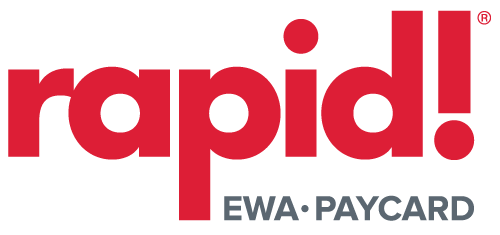Compliance & Regulations
The Wage Solutions Resource Center provides payroll professionals and their employers with a valuable resource on permissible methods of paying wages. Topics include how to integrate paycards and/or earned wage access into employer wage payment policies.
Federal Requirements

Consumer Financial Protection Bureau Regulation E and the Prepaid Rule The Electronic Fund Transfer Act (“EFTA”), establishes the basic rights, liabilities, and responsibilities of consumers who use electronic money transfer services and the financial institutions that offer these services.
The EFTA, enacted in 1978, was implemented by the Federal Reserve Board, later transferred to the Consumer Financial Protection Bureau (CFPB), and includes requirements for payroll card accounts. These accounts are defined in Regulation E as established through an employer, directly or indirectly, to which electronic fund transfers of employee wages, salaries, or other compensation (e.g., commissions) are made on a recurring basis. Regulation E applies to employers, third-party processors, depository institutions, and anyone else involved in payroll card accounts.
CFPB Bulletin 2013-10, 9-12-13
The CFPB asserts that an employer cannot mandate use of a payroll card even if a state allows an employer to require electronic wage payments. Instead, employees must be given a choice between a payroll card and another payment method.
Federal Deposit Insurance Corporation
The FDIC requires financial institutions to implement and maintain security requirements when issuing prepaid cards, such as payroll cards. These measures must include risk-based procedures for verifying customers’ identities to the extent reasonable and practicable. Historically, the FDIC raised security concerns when a bank issues prepaid cards under arrangements with third-party program managers that sell, distribute, promote, or market the prepaid cards issued by the bank. The employee using a payroll card may not have an account with the issuing bank making authentication more complicated.
The FDIC is also responsible for deposit insurance, which covers payroll cards. This means that if a bank fails, card holders can recover as much as $250,000. This is done through the Deposit Insurance Fund, which is backed by the full faith and credit of the U.S. government.
State Requirements

Paycards
The following states have enacted laws, regulations, or guidance covering paycards: Alaska, Arizona, Arkansas, California, Colorado, Connecticut, Delaware, Florida, Georgia, Hawaii, Illinois, Iowa, Kansas, Kentucky, Maine, Maryland, Michigan, Minnesota, Missouri, Montana, Nebraska, Nevada, New Hampshire, New Jersey, New Mexico, New York, North Carolina, North Dakota, Oklahoma, Oregon, Pennsylvania, Rhode Island, Tennessee, Texas, Utah, Vermont, Virginia, West Virginia, and Wyoming. These states permit paycard use, subject to certain conditions.
Earned Wage Access (EWA)
In 2023, Missouri and Nevada became the first two states to pass laws regulating earned wage access (EWA). In 2024, Kansas, South Carolina, and Wisconsin passed EWA laws. So far in 2025, Arkansas, Indiana, and Utah have passed EWA laws. Additional states have issued guidance on EWA. In California, the California Department of Financial Protection and Innovation (DFPI) has signed memorandums of understanding (MOUs) with several EWA companies. Under the MOUs, the companies are required to submit quarterly reports to the state and disclose any fees assessed on employees. The DFPI issued regulations that require EWA providers to register with the state. Arizona, Connecticut, Maryland, and Montana have issued guidance regarding EWA.
Several states, including Colorado, Connecticut, New Mexico, Oregon, Vermont, and Washington are considering legislation that would allow EWA programs under certain conditions.




